

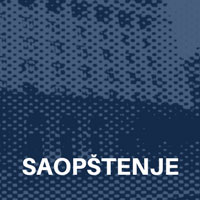
 The Court of Appeals in Belgrade upheld the conviction against Dalibor Krstović, a member of the Republika Srpska Army, for the rape of a Bosniak woman in Kalinovik in August 1992, but radically reduced the sentence from nine to only five years in prison.
The Court of Appeals in Belgrade upheld the conviction against Dalibor Krstović, a member of the Republika Srpska Army, for the rape of a Bosniak woman in Kalinovik in August 1992, but radically reduced the sentence from nine to only five years in prison.
The Humanitarian Law Center believes that the reduced sentence of imprisonment of five years, which is the legal minimum for the criminal offence of war crime against civilians, is extremely inappropriate for the gravity of the offence committed, that it does not achieve the purpose of punishment, and that such a punishment is humiliating for the victim. Inadequate punishment of sexual violence in war neglects the lasting consequences such a decision has for the victim: the victim is retraumatised, and the crime itself, as one of the most destructive crimes committed in war, is minimised in relation to other war crimes. Exceeding the accusation to the detriment of the defendant, which the Court of Appeal cites as reason for mitigating the sentence, is not such as to justify that decision.

 On 15 December 2023[1], the Court of Appeal in Belgrade upheld the verdict of the Higher Court in Belgrade, which, in the absence of evidence, acquitted the accused Nebojša Mirović of committing the criminal offence of a war crime against civilians during the summer of 1992 in the territory of the municipality of Teslić (BiH). The Humanitarian Law Center believes that the Public Office of the War Crimes Prosecutor in this case failed to argue and substantiate the indictment it had presented.
On 15 December 2023[1], the Court of Appeal in Belgrade upheld the verdict of the Higher Court in Belgrade, which, in the absence of evidence, acquitted the accused Nebojša Mirović of committing the criminal offence of a war crime against civilians during the summer of 1992 in the territory of the municipality of Teslić (BiH). The Humanitarian Law Center believes that the Public Office of the War Crimes Prosecutor in this case failed to argue and substantiate the indictment it had presented.
By the indictment of the Public Office of the War Crimes Prosecutor, Nebojša Mirović was charged on 12 counts, that during the summer of 1992, in the area of Teslić municipality, he and several members of the Teslić police station participated in inflicting physical and mental pain or suffering (torture) and bodily injury on Bosniak civilians.

Sorry, this entry is only available in srpski.
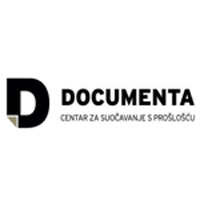
Sorry, this entry is only available in srpski.
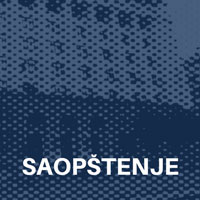
 On 30 October 2023, the Court of Appeal in Belgrade issued a decision[1] annulling the first-instance verdict in the Štrpci Case and returning the case for retrial. The Humanitarian Law Center considers it inadmissible that thirty years after the abduction and murder of twenty civilians in Štrpci, the judicial authorities are unable to conduct the procedure in a professional manner and reach a verdict.
On 30 October 2023, the Court of Appeal in Belgrade issued a decision[1] annulling the first-instance verdict in the Štrpci Case and returning the case for retrial. The Humanitarian Law Center considers it inadmissible that thirty years after the abduction and murder of twenty civilians in Štrpci, the judicial authorities are unable to conduct the procedure in a professional manner and reach a verdict.
Initiating the proceedings again implies the re-traumatisation and exhaustion of the families of the victims and witnesses in this proceeding, as well as the trivialisation of war crimes trials. Such a decision not only delays the imprisonment of the direct perpetrators, one of whom has already died during the proceedings, but also the hope that representatives of the civil, military and police authorities of Serbia and of the Federal Republic of Yugoslavia who were familiar with the kidnapping plan in Štrpci, will be prosecuted for the crime. This procedure has not contributed to the discovery of the mortal remains of the victims, which is one of the goals of the National Strategy for the War Crimes Prosecution.
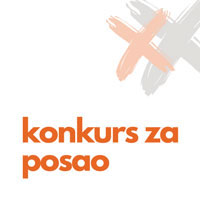
 Location: Belgrade, Serbia
Location: Belgrade, Serbia
Full-time, office-based
Deadline: December 17, 2023
The Humanitarian Law Center is the leading non-governmental organisation in Serbia dealing with the legacies of the wars in the former Yugoslavia during the 1990s. Its work is founded on three closely interrelated pillars: documentation, justice, and memory. The Memory Programme relies on the documentation gathered by the HLC during the 30 years of its work, including the facts established before courts, in order to commemorate victims of war crimes, challenge the dominant revisionist narratives about the wars, provide informal education on the subject, and disseminate the judicially determined facts about the wars in an arresting way, using different media formats.
We are looking for a dedicated and skillful professional to add their expertise and strengthen our team of experienced researchers and practitioners. The Project Coordinator will be responsible for further developing our programme and implementing, monitoring, and reporting on the implementation of activities. She or he will coordinate the 3-4 member team’s work and report directly to the Deputy Executive Director.
Duties:
To perform the mentioned tasks, the candidate must meet the following requirements:
Preference will be given to candidates:
The engagement requires full-time commitment and office-based work in Belgrade.
Applications should include a curriculum vitae (CV), and a motivational letter with information on the reasons for applying to the job opening and the key areas of potential contribution to the HLC’s Memory Programme. Please send applications to konkurs@hlc-rdc.org by December 17, 2023, at the latest. After reviewing applications, only shortlisted candidates will be contacted.
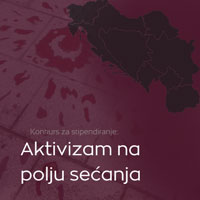
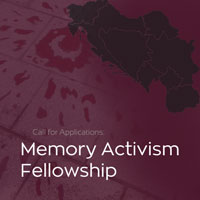
The Humanitarian Law Center (HLC) has announced a new call for a fellowship within the “Memory Activism” program. The objective of the program is to facilitate a critical, facts-based, and victim-centered memory culture related to the wars in the former Yugoslavia.
We offer fellowships for a duration of 3 to 6 months, commencing from February until the end of September 2024. We invite fellowship applications from researchers, journalists, practitioners, and artists who focus on the 1990s wars in the former Yugoslavia from various perspectives. The fellowship is non-residential and does not require physical presence in Belgrade. Fellows are expected to produce outputs during the fellowship, which will be published and promoted by the HLC. Outputs can take the form of analyses, policy papers, reports, a series of blogs, or the organization of events and can be in electronic/digital and physical forms. Fellowships can start from February 1, 2024, and must conclude no later than September 30, 2024.
Candidates over 18 years of age, regardless of nationality and residence, are eligible to apply. Applications can be individual or group-based, with a maximum of three members per group. In the case of a group application, the scholarship amount will be divided among the number of group members. The scholarship includes a monthly gross honorarium of USD 1,563, aimed at supporting fellows during the research period and the implementation of planned activities.
Applications for the scholarship should include:
Applications should be sent to the email address memoryprogram@hlc-rdc.org with the subject “Application for Fellowship 2023,” no later than December 31, 2023. Applications can be in English or BCMS language. Applicants will be notified of the success of their application during the last week of January.
Selection criteria include:
Since 1992, the Humanitarian Law Center has been documenting war crimes and human rights violations in the former Yugoslavia, focusing on victims and their testimonies. Advocating for comprehensive work in the transitional justice process has been central to the organization’s mission. The work of the organization is based on three pillars: documentation, justice, and memory, with the “Memory Activism” program being crucial for the organization’s future. Within this program, the HLC commemorates and remembers the victims of conflicts through various initiatives, including public debates, documentaries, digital activism on social media, and other digital memory practices. In addition to paying tribute to the victims of war crimes and mass human rights violations during the 1990s wars, the “Memory Activism” program examines and criticizes dominant revisionist narratives about the wars, provides informal education, promotes legally established facts about the wars in an engaging manner, using various media formats. The program also conducts research, analysis, and policy proposals focused on memory policies in the region.
Any questions about the fellowship and its conditions can be sent to memoryprogram@hlc-rdc.org or nikola.gajic@hlc-rdc.org.

Sorry, this entry is only available in srpski.

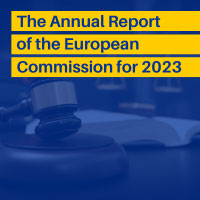 On November 8th, 2023, the European Commission (EC) adopted an annual report assessing the situation and progress of the Republic of Serbia on its path to accession to the European Union.
On November 8th, 2023, the European Commission (EC) adopted an annual report assessing the situation and progress of the Republic of Serbia on its path to accession to the European Union.
Under Chapter 23 concerning the judiciary and fundamental rights, the EC report includes an assessment of the work of relevant state institutions regarding war crimes trials in Serbia, particularly the Public Prosecutor’s Office for War Crimes (PPOWC), their cooperation with regional and international actors, as well as the efficiency and dedication to criminal justice processes.